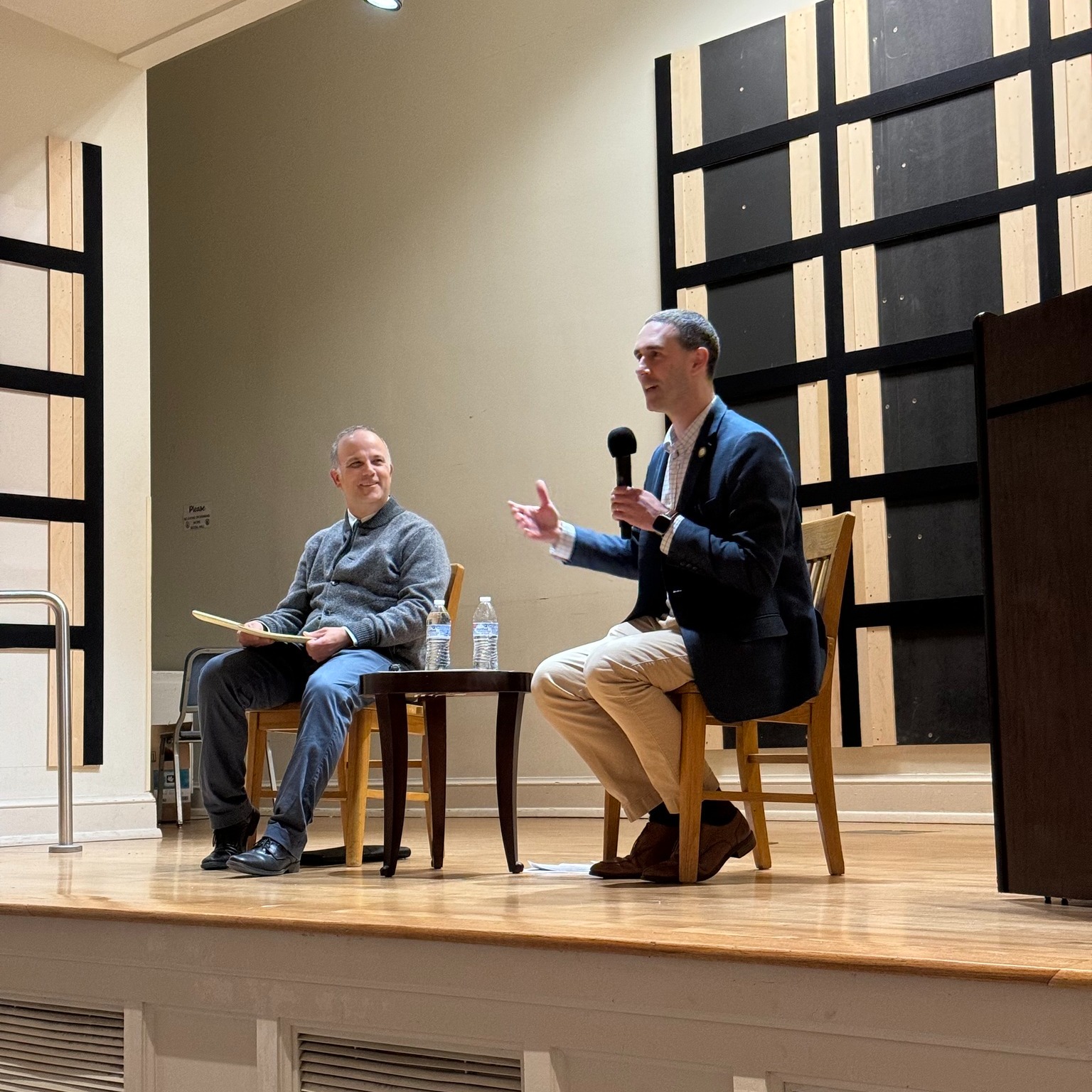“Arbiters of the Election:” A Conversation with Dr. Alan Kennedy, a Multi-Term Elector
 On October 22, 2024, the William & Mary Public Policy Program and Government Department invited Dr. Alan Kennedy, associate teaching professor and multi-term elector for Colorado and Virginia, to speak on the electoral college and its controversy. Moderated by Dr. Paul Manna, Isabella and Jerome E. Hyman Distinguished Professor of Government, Dr. Kennedy provided a brief history and overview of the electoral college and its alternatives before conversing with Dr. Manna and taking questions from the audience.
On October 22, 2024, the William & Mary Public Policy Program and Government Department invited Dr. Alan Kennedy, associate teaching professor and multi-term elector for Colorado and Virginia, to speak on the electoral college and its controversy. Moderated by Dr. Paul Manna, Isabella and Jerome E. Hyman Distinguished Professor of Government, Dr. Kennedy provided a brief history and overview of the electoral college and its alternatives before conversing with Dr. Manna and taking questions from the audience.
Dr. Kennedy's opening remarks acknowledged that the United States "has not been this divided for decades, if not longer." Recalling the January 6, 2021 insurrection when he was an elector for President Joe Biden and Vice President Kamala Harris in Colorado, Dr. Kennedy emphasized how the refusal of election results by former President Donald Trump and insurrectionist electors threaten the 12th and 14th Amendments. Though Dr. Kennedy criticized the electoral college as an undemocratic institution that should be abolished, he admitted the need to protect “the ultimate arbiter of the election” until Congress either abolishes or reforms it. Though a flawed institution, Dr. Kennedy was clear that the electoral college must be protected from political interference.
Though election reform before the 2024 presidential election is unlikely, Dr. Kennedy pointed to the Electoral Count Reform Act of 2022 as a necessary first step to protect the upcoming election. The Act specifies that the vote count on the Floor is ceremonial and requires 1/5th of the House and Senate to overturn election results. Though far from a perfect system, Dr. Kennedy was confident that recent reform efforts will deter politicians from overturning election results.
reform efforts will deter politicians from overturning election results.
When conversing with Dr. Manna, Dr. Kennedy compared the processes of becoming an elector in Colorado and Virginia. Since state legislatures control the requirements and process of becoming an elector, Dr. Kennedy adapted his campaign strategy after moving to Virginia. Whereas Dr. Kennedy was one of dozens of candidates for two at-large elector spots in Colorado, he only competed against a few candidates in Virginia’s 1st Congressional District, where he was able to contact every eligible voter.
Questions about the electoral college and election controversies dominated the Q&A session. Though a difficult topic for a multi-term elector to navigate, Dr. Kennedy drew on his experience in politics and public policy expertise to give further advice about the upcoming election. Emphasizing the importance of voting since a constitutional amendment or bipartisan reform bill is unlikely, Dr. Kennedy pointed out that winning states by large margins would reduce the likelihood of overturning election results.
Although winning states by wide margins reduces controversy, Dr. Kennedy discussed the history and implications of faithless electors. Historically, faithless electors were electors who, once elected, cast their vote for the opposing party. Most notably, five faithless electors voted for someone other than former Secretary of State Hillary Clinton and two faithless electors voted for someone other than Trump in the 2016 election. In 2020, the Supreme Court ruled that states may require electors to vote for candidates they pledged to support and fine them for not doing so, mitigating their impact in the upcoming election.
Overall, Dr. Kennedy’s talk showcased the ability of William and Mary faculty to engage with the larger political arena outside of academia. As a scholar-practitioner, Dr. Kennedy noted that “politics is a way to achieve change.” Through careful academic study and persistent application, Dr. Kennedy hopes to continue to advance institutions towards equity and democracy.














